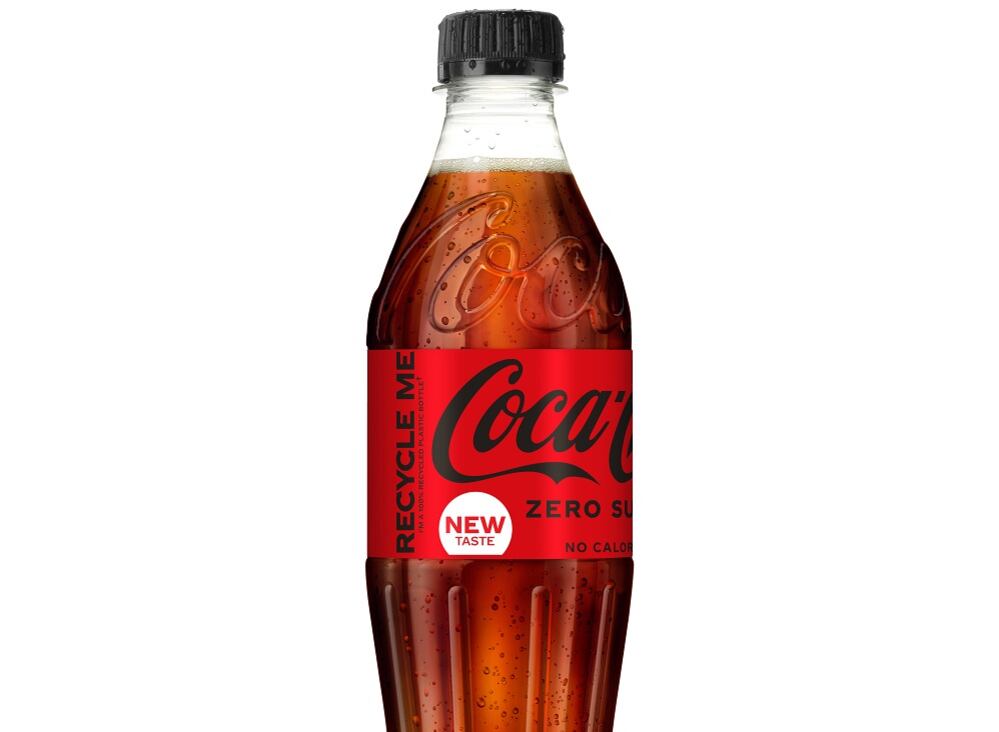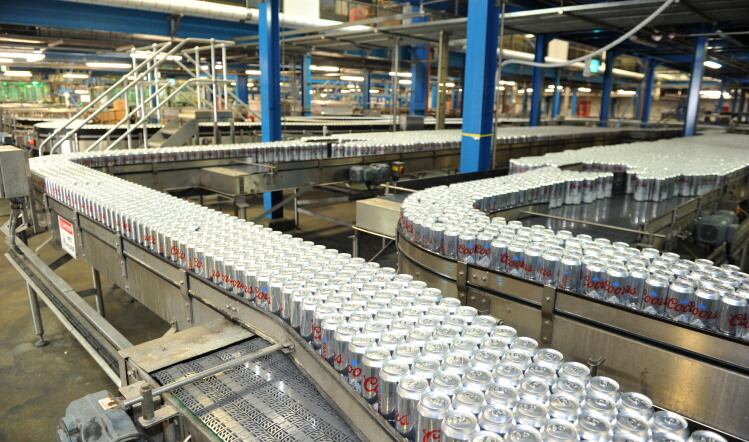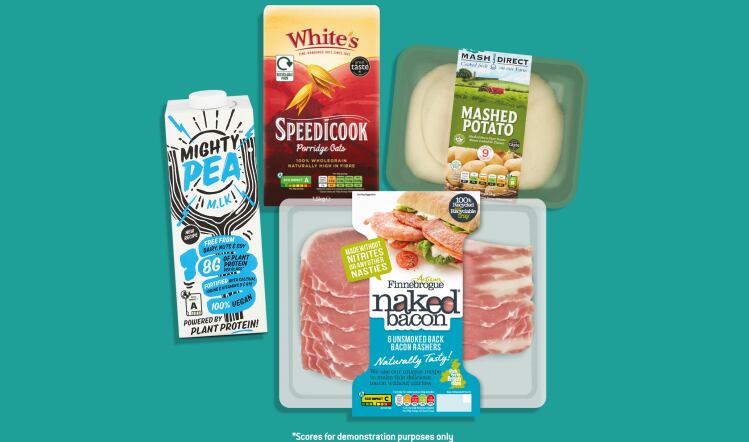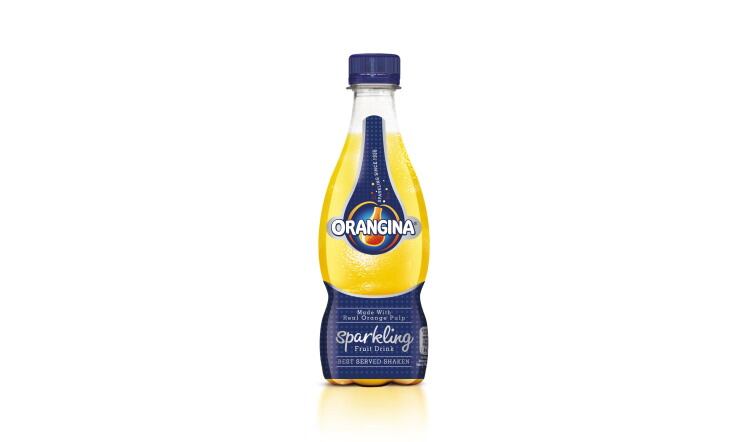Coca-Cola GB rolls out fully recycled rPET across on-the-go bottles
Coca-Cola Great Britain (CCGB), in partnership with Coca-Cola Europacific Partners (CCEP), is to roll out 100% recycled polethylene terephthalate (rPET) plastic in all its on-the-go bottles in two months. CCGB said the first completely recycled 500ml bottles would start appearing on shelves from September. This milestone means the company will increase the amount of recycled plastic material in smaller bottles from 50% to 100%.
Coca-Cola’s use of recycled plastics in Great Britain now saved 29,000 tonnes of virgin plastic each year according to CCGB – the equivalent of 2,292 double decker buses. The company is also completing the transition from plastic shrink wrap to cardboard packaging across all multipacks. That equates to more than 30 million packs sold to consumers each year.
“Increasing the amount of recycled plastic we use is a critical point in our sustainable packaging journey," said Stephen Moorhouse, general manager at CCEP GB. "And reaching 100% rPET puts us one step closer to achieving our ambition of a world without waste - collecting and recycling a bottle or can for every one that we sell by 2025.”
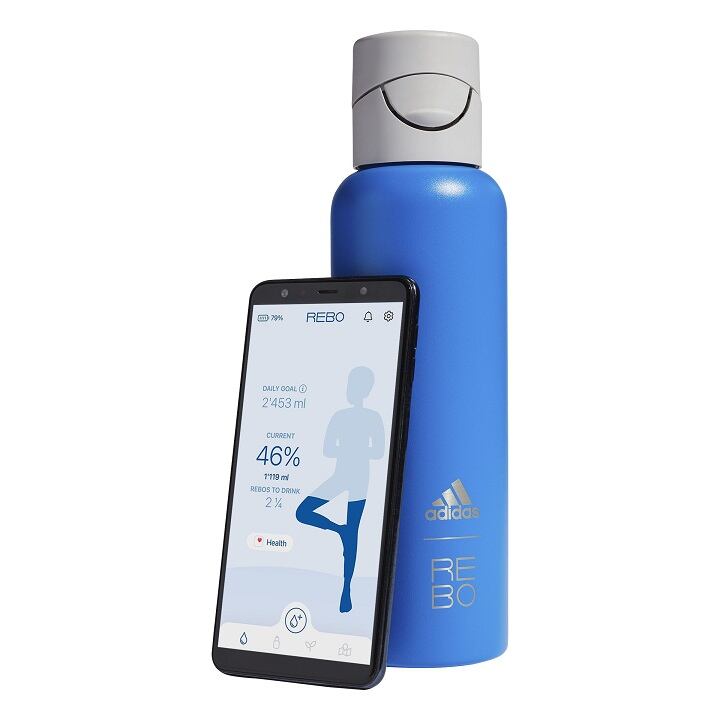
Aptar and REBO water bottle reminds consumers to keep drinking
Aptar Food + Beverage has worked with REBO to design a reusable water bottle that uses technology to remind people to stay hydrated, while helping to collect plastic bottles discarded outdoors.
The REBO water bottle uses Bluetooth technology embedded in the cap to track the amount of water consumed. A personalized hydration smartphone app syncs with the bottle’s smart cap to track health goals. The bottle lights up and sends consumers reminders to stay hydrated.
In addition, every time the user refills the REBO bottle, a credit is produced to fund the collection of a tossed away plastic bottle in underdeveloped regions.
Jerome Magniet, president of global market development at Aptar said: “Aptar is committed to contribute to a more circular economy that will help our customers and partners achieve their sustainability targets, while creating a positive impact on our people and the planet. The partnership with REBO allows us to advance our market knowledge for emerging trends and leverage our manufacturing, regulatory and innovation expertise.”
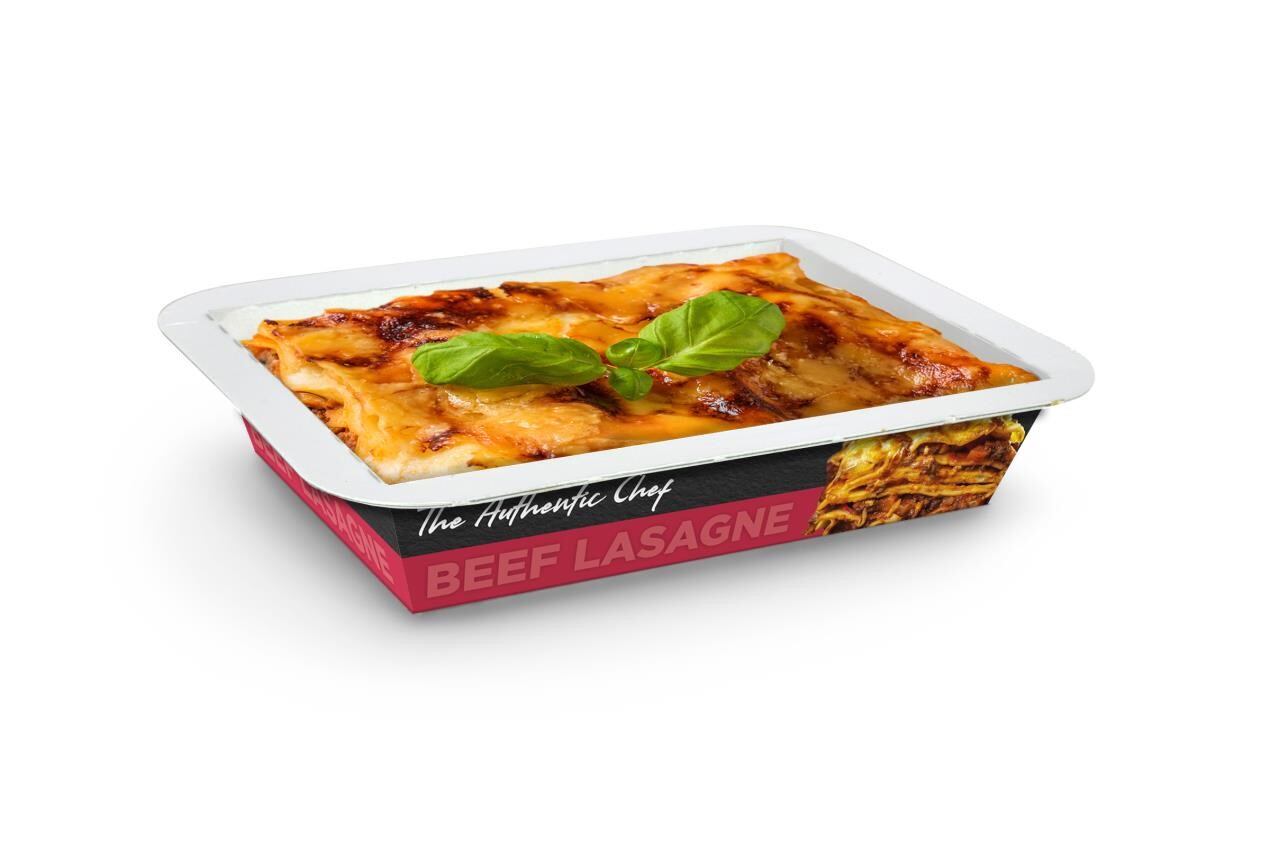
Graphic Packaging launches dual-ovenable tray
Graphic Packaging International has announced PaperSeal Cook, a dual-ovenable version of its PaperSeal tray range, allowing a single chilled or frozen food product to be cooked in either conventional ovens or microwaves. The move follows the launch of its PaperSeal Slice and PaperSeal Wedge ranges, designed for sliced meat and cheese. In addition, PaperSeal Cook uses up to 80% less plastic than traditional trays.
Ricardo De Genova, Graphic Packaging’s senior vice president, global innovation and new business development, said: “Many of our customers are seeking to minimize the amount of plastic packaging they use in a category that has traditionally been dominated by CPET [crystallized polyethylene terephthalate] trays.
"We’ve transferred our PaperSeal technology to a convenient fibre-based ovenable and microwaveable solution that has all the benefits of the PaperSeal tray along with a liner that can withstand the high temperatures required in cooking.”
The PaperSeal Cook tray features a one-piece continuous sealing flange to prevent leaks and ensure robustness through the supply chain. After use, the consumer can easily separate the liner film from the paperboard, making the paperboard portion of the tray 100% recyclable through normal collection channels.
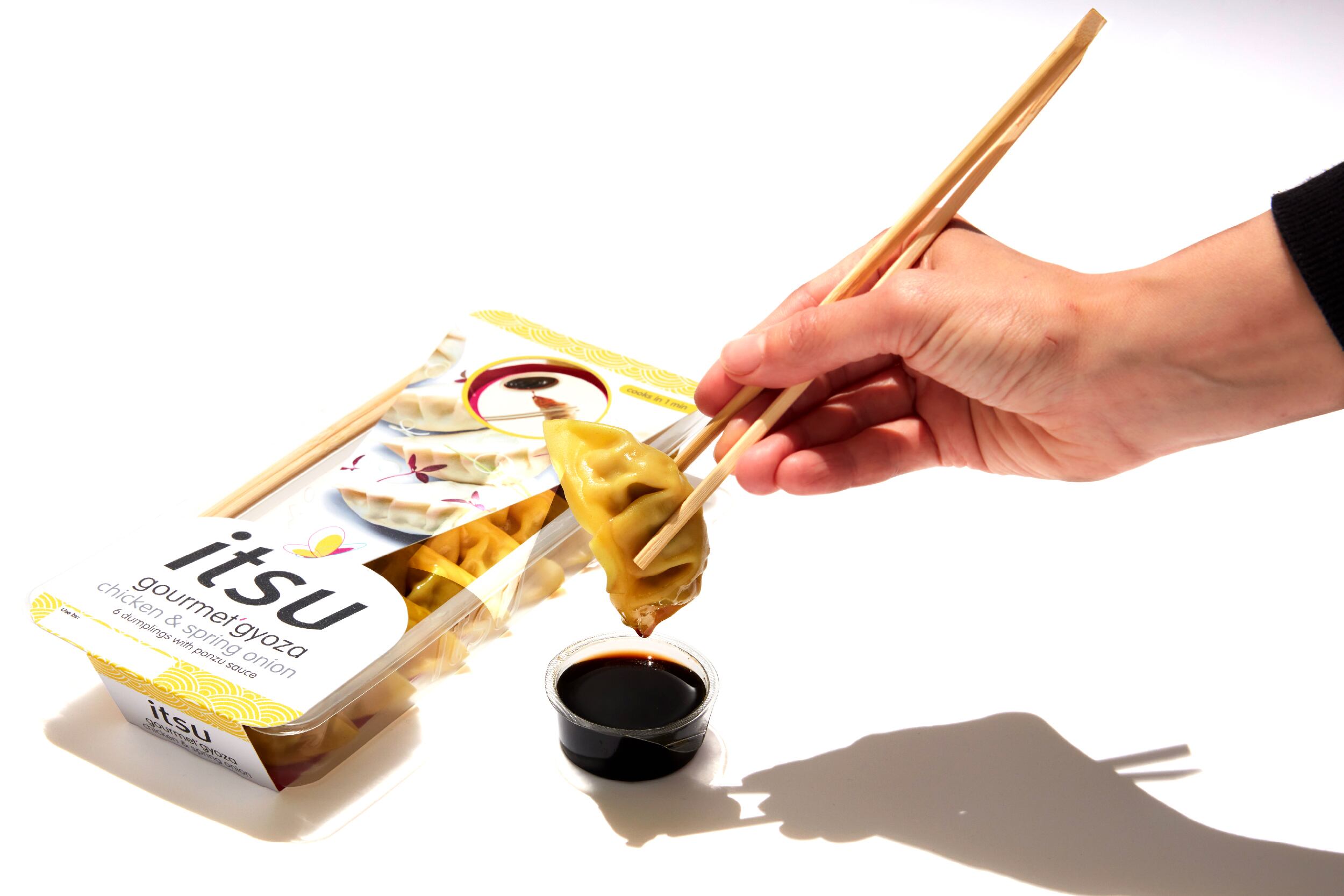
Proseal helps Itsu devise retail packaging
Tray sealing specialist Proseal has helped leading Asian-inspired healthy food brand Itsu diversify into the retail market. Using Proseal’s test kitchen, Itsu created microwaveable packaging for its new ‘heat & eat’ range, including its popular gyoza, bao bun and ‘hotsu’postu’ recipes, which are now being sold in major UK supermarkets.
Proseal worked closely with Itsu throughout the product development stage, trialling different tray concepts, materials and processes, as well as producing sample packs to present to retail customers. The company has now commissioned tooling for the three chosen tray designs, suitable for high-speed filling on its GT1 tray sealing machine.
Bryony Roberts, packaging development manager, Itsu, said: “We needed a pack format that created the right impression on shelf while offering maximum convenience and ease of use for the consumer. Proseal provided invaluable support in developing a process that exactly met our criteria, while also being able to provide quality equipment that meets the needs of our busy production line.”
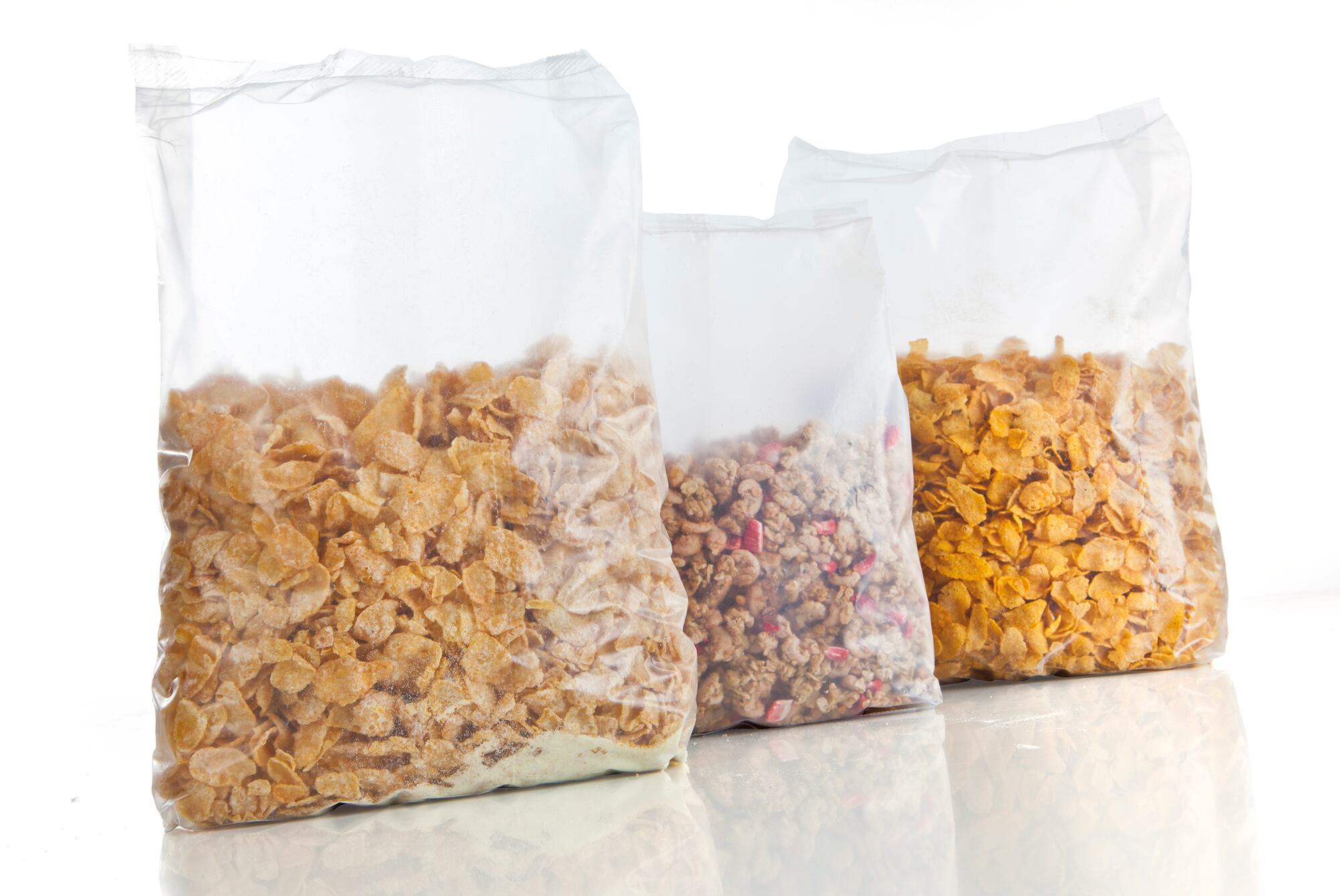
Coveris announces new dry foods packaging
Coveris has developed new Cereal+ packaging for breakfast cereals and other dry consumer products. The liner is made from fully recyclable polyethylene and provides product protection, freshness and shelf life for cereals and dry foods packed in bag-in-box films. Coveris said the packaging had been designed for ease of opening and improved puncture resistance without compromising on sealing integrity and efficiency during packing.
The company said Cereal+ liners were available with additional gas barrier properties for added protection and could be used for household cereal and catering pack applications. The packaging is made at Coveris Winsford, where the business recently announced £6m of machine and infrastructure investments enabling the site to be a centre of excellence for industrial, agricultural and recycled stretch products.
Sujoy Bose, sales director at Coveris Winsford explained: “Coveris identified an opportunity to advance its cereal film liner products and with our film science laboratory and technical capabilities in co-extrusion, developed a new solution, Cereal+.
Cereal+ leads the way in film innovation for this sector using a new formulation sourced from different raw materials. This supports our customers with a wider choice of high quality, high performance recyclable cereal liner packaging for their products.”
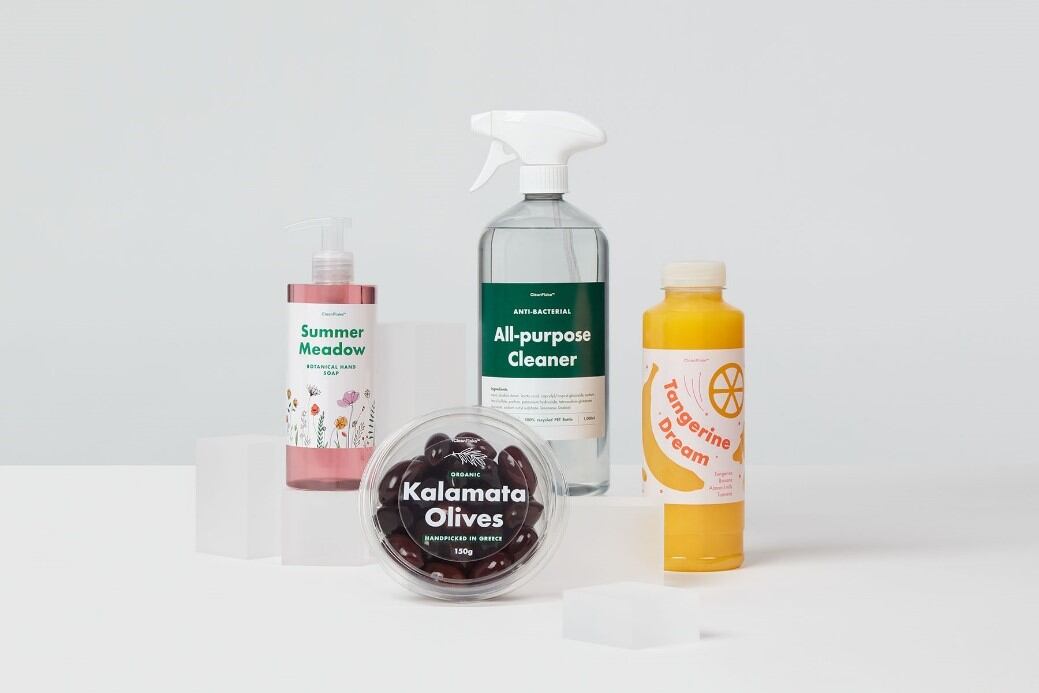
Avery Dennison expands PET flake supply
Avery Dennison has upgraded its CleanFlake film label adhesive to boost the recycling potential of PET food, home and personal care products and other segments, in addition to beverages.
First introduced in 2013, the CleanFlake technology ensures a label’s adhesive stays with the label and not on the package, so all label material fully detaches during the recycling process. The resulting washed PET flakes can then be recycled into new PET packaging. Flakes that are otherwise contaminated by conventional label materials must be downcycled or sent to landfills or incinerators.
Avery Dennison product manager Mariya Nedelcheva said: “We are closing the gap between CleanFlake materials and conventional, general purpose label materials.”
With a new proprietary adhesive, SR3011N, CleanFlake materials look and perform like any other self-adhesive label material. An upgrade to a best-in-class topcoat provides outstanding printability, and CleanFlake materials were designed to deliver fast, flawless application on high-speed labelling machines, said Avery Denison.
Plastics supply shortages and price rises persist
Sheet plastics body IVK Europe has warned there is no improvement in sight in the wave of force majeure statements from European plastics raw material suppliers and in soaring costs.
Plastic manufacturers were continuously faced by major challenges due to the severe shortage of important raw materials and continuing price increases, the organisation said. At the same time, the demand for packaging for medical devices and food applications was still very high.
Supply could no longer be fully guaranteed in parts of the production, IVK Europe added. In some cases, these supply bottlenecks had even led to the temporary shutdown of production plants. In addition, plastics manufacturers needed to cope with extreme price increases, especially for polymers and additives.
Packaging raw material costs (all data courtesy of Mintec)
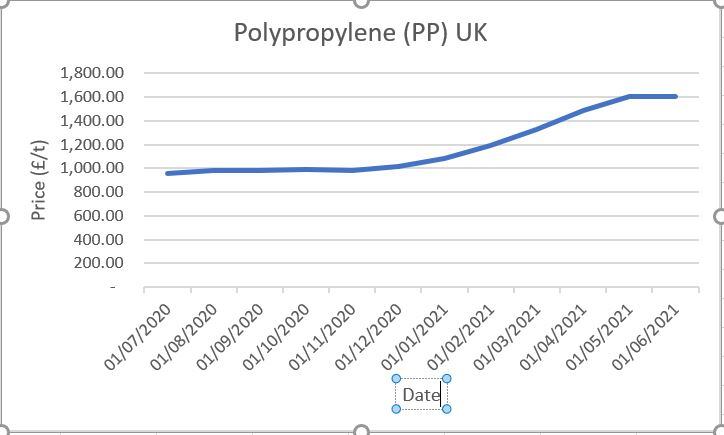
The UK monthly average price of polypropylene (PP) was effectively flat month-on-month, easing 0.12% but remaining up 73% year-on-year at £1,602/t in first week of June. The UK PP market followed the trend of the wider polymer market, which has risen on limited supply and resilient demand. Limited export supply from the US and European factory maintenance in the first quarter of 2021 has limited resin supply in the European market. Ineos, the UK’s largest resin supplier, has declared force majeure at various PP factories throughout Europe, including its Scottish site, since January 2021. As a result, the UK PP market has spiked significantly since the beginning of the year.
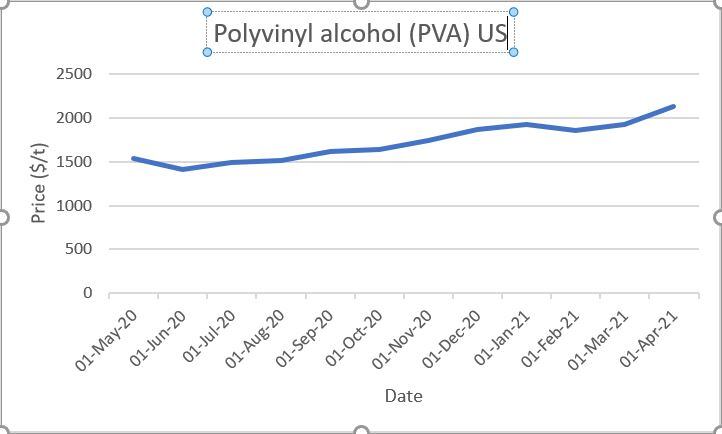
Like PP costs, PVA prices continued to broadly increase through the first quarter of 2021, pushing past $2,000/t for the first time in the 12 months to April, following a slight dip in January. Again, there seems little sign of prices easing in the short to medium-term.

